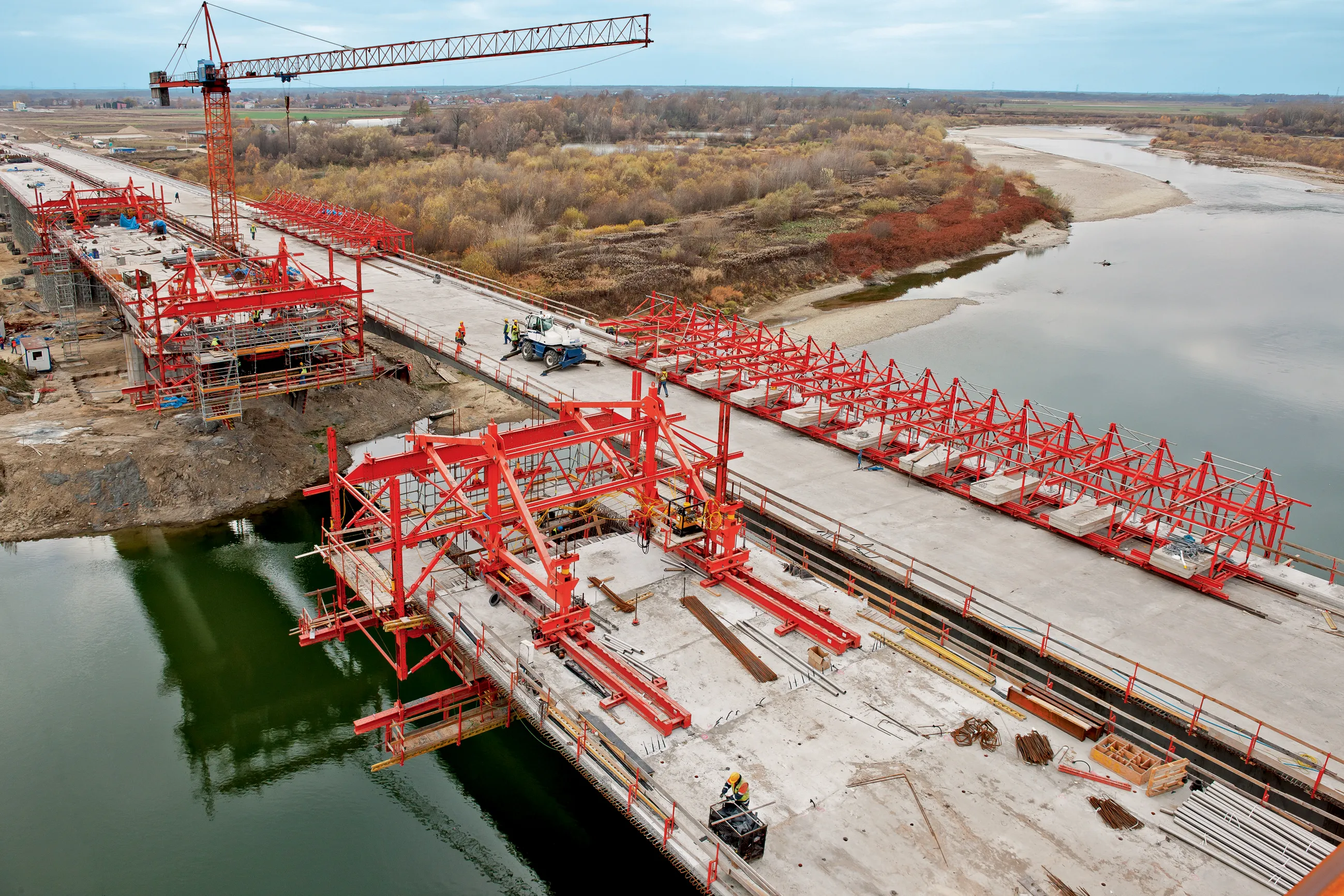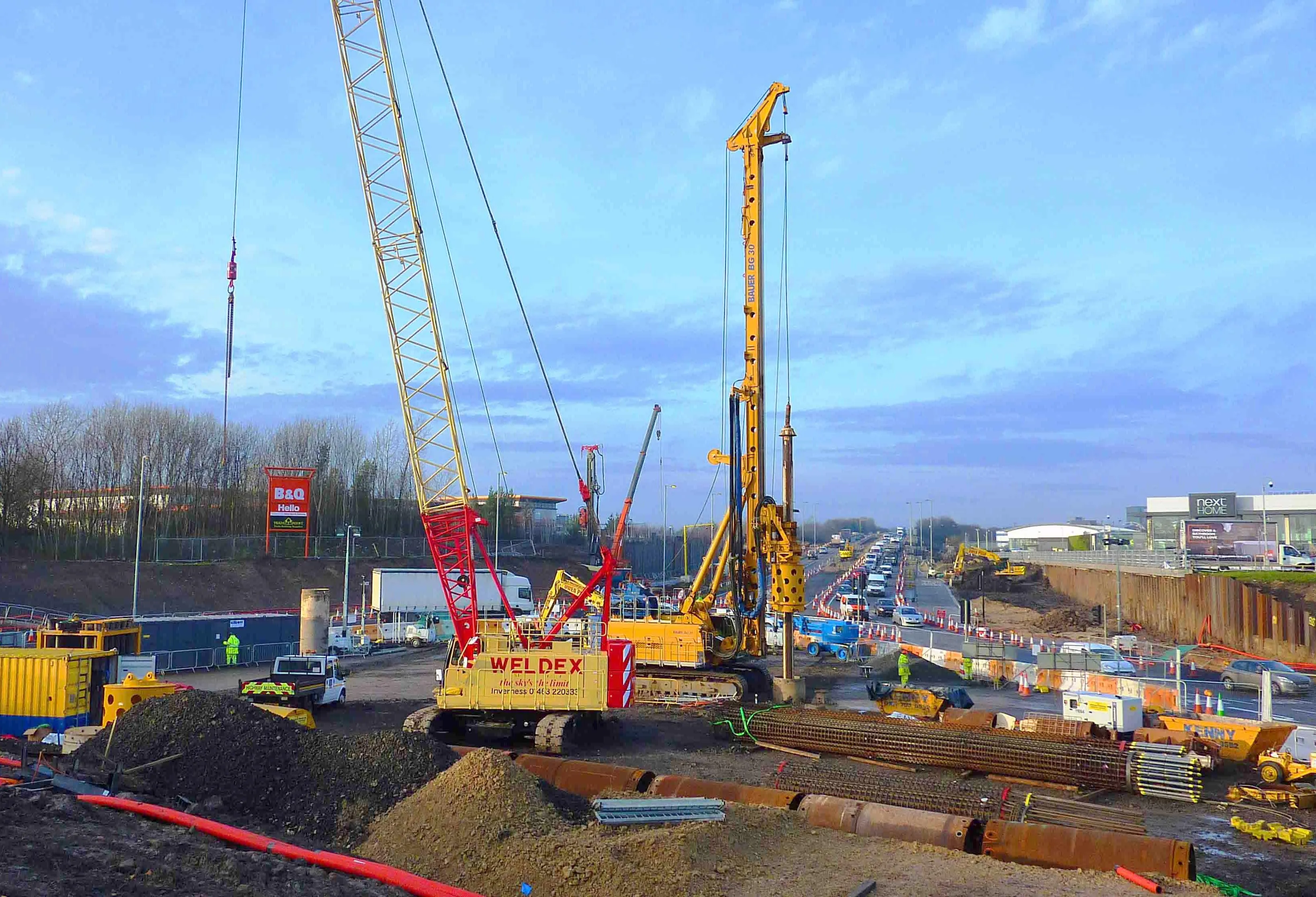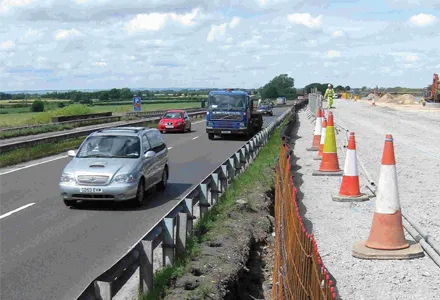Foundation specialist Forasol has developed an innovative technique for anchor drilling that is improving ground consolidation on road projects in Switzerland. The technique has been widely used on a number of highway projects in the country, including construction of a new 1.3km long cut-and-cover trench for the A9 highway in south western Switzerland.
July 10, 2012
Read time: 2 mins

RSSFoundation specialist 6159 Forasol has developed an innovative technique for anchor drilling that is improving ground consolidation on road projects in Switzerland.
The technique has been widely used on a number of highway projects in the country, including construction of a new 1.3km long cut-and-cover trench for the A9 highway in south western Switzerland.
A modified version of6158 EGTechnology's largest foundation drilling rig is being used to drill and install high capacity anchors on this job, which is scheduled for completion in 2013. Using the patented Anchor-Jet procedure, Forasol has drilled and installed anchors to retain the trench's sheet steel pile wall. The trench is being excavated to a depth of 13m and the foundation base is supported by a jet grouting plug, which helps brace the bottoms of the sheet steel piles.
EGT redesigned its VD7800 vertical drill rig to Forasol's requirements, allowing the machine to drill horizontally with a 10-45º angle of inclination. As a result the 32tonne-class drill rig has allowed Forasol to install its patented anchor technology using long tieback anchors. The retaining work includes 4,000 anchors that measure from 16-35m in length, with load-bearing capacities of 700-900kN.
Conventional anchor drilling methods require drilling, inserting the anchor tendon and injecting the sealing cement and this whole process can take several days. However the Anchor-Jet system allows all the operations to be carried out in a single step that takes around an hour. Cable tensioning can then be carried out five days after installation and the company says that its technique vastly reduces the time needed for support work and helps cut overall project costs.
The Anchor-Jet system is claimed to offer 50% more retaining force than conventional techniques and allows engineers to cut the number of anchorage points required for a single job.
This procedure uses jet grouting of cement slurry at pressures of 400-600bars to produce an in situ concrete sealing bulb around the anchor tendon, and because the anchorage forces can be calculated beforehand, the system is also more predictable than conventional techniques, according to Forasol.
The soils at the A9 tunnel site did not suit the use of traditional anchors, and the project engineers wanted to avoid using internal bracings.
The technique has been widely used on a number of highway projects in the country, including construction of a new 1.3km long cut-and-cover trench for the A9 highway in south western Switzerland.
A modified version of
EGT redesigned its VD7800 vertical drill rig to Forasol's requirements, allowing the machine to drill horizontally with a 10-45º angle of inclination. As a result the 32tonne-class drill rig has allowed Forasol to install its patented anchor technology using long tieback anchors. The retaining work includes 4,000 anchors that measure from 16-35m in length, with load-bearing capacities of 700-900kN.
Conventional anchor drilling methods require drilling, inserting the anchor tendon and injecting the sealing cement and this whole process can take several days. However the Anchor-Jet system allows all the operations to be carried out in a single step that takes around an hour. Cable tensioning can then be carried out five days after installation and the company says that its technique vastly reduces the time needed for support work and helps cut overall project costs.
The Anchor-Jet system is claimed to offer 50% more retaining force than conventional techniques and allows engineers to cut the number of anchorage points required for a single job.
This procedure uses jet grouting of cement slurry at pressures of 400-600bars to produce an in situ concrete sealing bulb around the anchor tendon, and because the anchorage forces can be calculated beforehand, the system is also more predictable than conventional techniques, according to Forasol.
The soils at the A9 tunnel site did not suit the use of traditional anchors, and the project engineers wanted to avoid using internal bracings.









